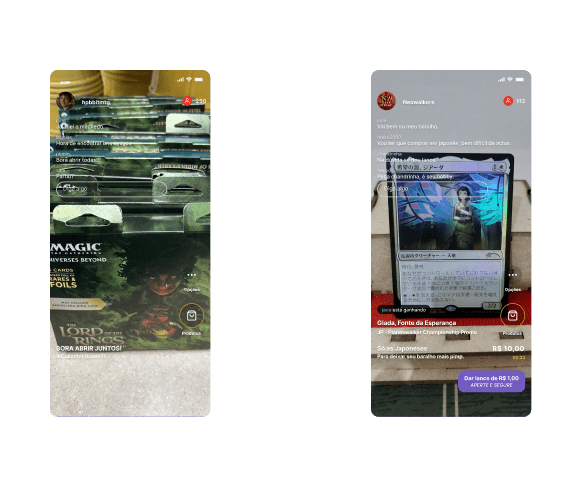
Moxen is an innovative live-commerce marketplace designed to empower small and medium-sized businesses to sell products while delivering a highly engaging shopping experience. As the Product & Design Director, I focused on creating a seamless and delightful user journey for both buyers and sellers on our platform, which is accessed via both a mobile app and a web browser. The challenge was to design an intuitive interface that could accommodate live video commerce interactions and streamline the purchasing process, ensuring trust and ease for all users.
Navigate through the case:
The Problem
Commerce was socialuntil the internetruined itCommerce has always been a social activity, fostering relationships between people and cultures. However, the internet disrupted this dynamic with cold, impersonal product pages. Traditional e-commerce platforms lacked the dynamic, real-time engagement that many sellers and buyers desired. Sellers needed a way to present their products more interactively, while buyers sought a trustworthy and engaging shopping experience. The lack of immediacy and personal interaction in existing solutions left both parties wanting more.


The Goal
To develop a live-commerce platform that combined live video streaming, interactive chat, and an integrated shopping experience, all within a single, user-friendly platform.
The Process
Benchmarking
I thoroughly studied other marketplaces and live-commerce platforms, especially Whatnot, to understand their strengths, weaknesses, and the adaptations needed for the Brazilian market. This analysis informed critical decisions, such as integrating Pix as a payment method, to better suit local needs.
User Research
I conducted interviews with both sellers and buyers to understand their pain points and needs. This included managing a Telegram group with 2,000 members, a VIP WhatsApp group with 160 members, and individual WhatsApp groups with each seller. These channels allowed me to maintain close communication, gather insights, and provide support to users.
Iterative Design in Code
I created the design directly in code, iterating through feedback gathered during live shows. After every session, I reached out to a cohort of the audience to collect insights on how to improve the product experience and live show performance.
Data Analysis
All user behavior on the platform was meticulously tracked and analyzed. This data was instrumental in identifying performance bottlenecks and uncovering opportunities to enhance both the product and the live shows.
Key Features Designed
Auction Based Sales
Introduced live auctions as the primary shopping tool, making the buying experience more engaging and entertaining for users.
Seamless Checkout Integration
Designed an intuitive shopping cart and payment flow, allowing buyers to complete purchases without leaving the platform.
Interactive Chat
Facilitated direct communication between sellers and buyers, allowing for personalized recommendations and feedback.
Results
Key Learnings
High Conversion Rates Live commerce proved to be a sales powerhouse, achieving a 17% conversion rate compared to the 1.5%-3% typical of traditional e-commerce experiences.
Engaging Auctions Auctions added significant value by creating a dynamic, real-time, multiplayer-like experience that entertained and engaged buyers.
Audience Size Insights While massive audiences were unnecessary, a minimum of 15 participants per live show was critical for maintaining strong sales performance.
Seller-Driven Success Sellers who actively promoted their live shows to their own audiences outperformed those who did not.
Reflection
The results achieved by such a small startup team underscore how e-commerce user experience can be transformed and reinvigorated. Live commerce proved to be an incredibly effective model, showing that innovation in engagement can directly translate into higher conversion rates and sales performance. This experience also highlighted the critical importance of iterating over multiple hypotheses of ideal customer profiles (ICPs). By continuously testing and refining our understanding of who the platform served best, we were able to understand the needs for both seller and buyer effectively.